What will President Obama's cancer 'moonshot' achieve?
- Published
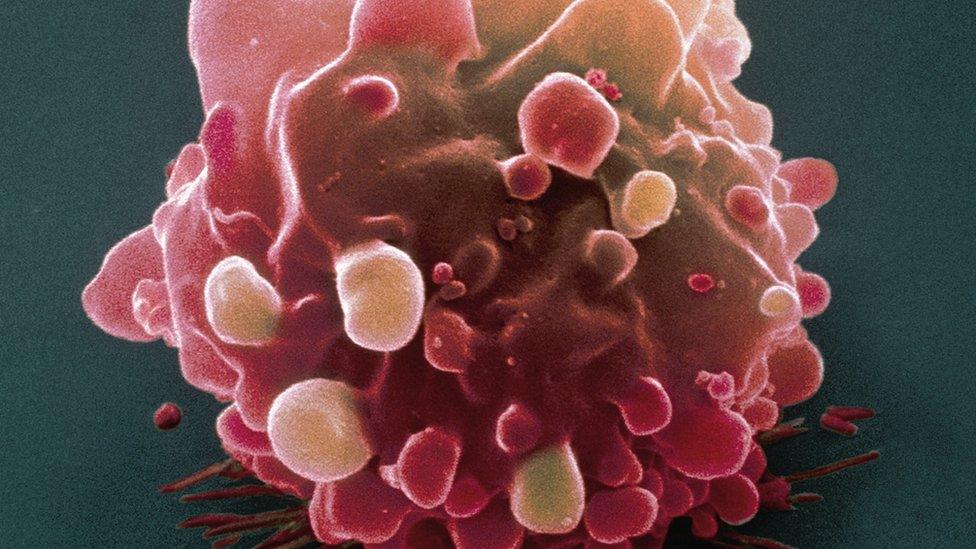
Cancer is the most complex disease we know of, say doctors
In January, US President Barack Obama announced, external a "moonshot" for cancer.
"Let's make America the country that cures cancer once and for all," he said in his last State of the Nation address.
President Obama put Vice President Joe Biden in charge of mission control. For Mr Biden it's personal - he lost his son Beau to brain cancer at the age of 46 last year.
The cancer moonshot is a $1bn (£710m) injection of cash intended to bring a decade's worth of advances in just five years.
It is focusing on new approaches such as combining treatments and immunotherapy, when drugs make the patient's own immune system turn against cancer cells.
There will also be more resources for new gene technologies to improve cancer detection. A further area of research is into more vaccines to prevent cancer.
Mr Biden sees his role as breaking down walls and bringing all the cancer fighters together.
Today many hospitals do not share data. Doctors don't always know about the latest successful therapies.
"We're going to make sure this information is shared so an oncologist in Austin, Texas can get access to information at MD Anderson, a major cancer institute [at the University of Texas] where my son was treated - geographically close but no access," said Mr Biden earlier this year.
More precise surgery
There have been considerable improvements in recent decades in some cancer treatments. Thirty years ago patients with a cancer diagnosis had a one in four chance of surviving for more than 10 years.
Now that figure is close to one in two.
"Underlying that general picture, it's a very mixed story," says Prof Nic Jones of Manchester University and research lead for Cancer Research UK. "In testicular cancer and breast cancer tremendous progress has been made. But in lung, pancreatic and brain cancer really very little progress has been made.
"We really need to focus our research effort on these areas."
A combination of targeted treatments, better and earlier diagnosis and more precise surgery and radiotherapy has led to longer survival. Changing lifestyles, such as giving up smoking, has also made a difference.
Immunotherapy is starting to make an impact, but only on a few patients.
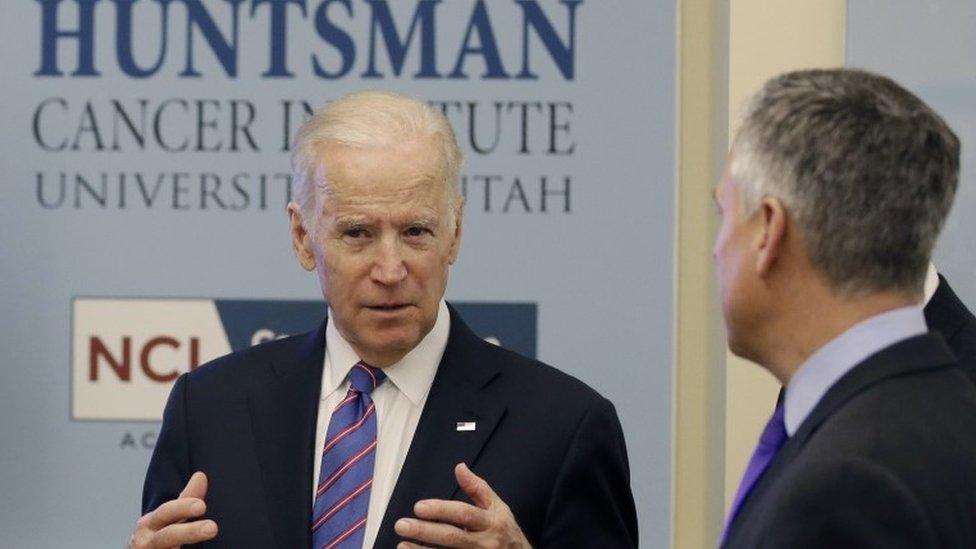
Joe Biden is leading the "moonshot"
Adrian Webb is one of the lucky ones. In 2012, he noticed that he had a mole that had changed colour.
It turned out to be a malignant melanoma.
After initial treatment, the disease returned and this time it had spread. He was given a year to live.
His doctor at Queen Elizabeth Hospital in Birmingham gave him a chance to be in a clinical trial of immunotherapy.
"After 12 months I was told that I was part of the 5% team. The therapy hadn't worked for the other 95%," he said.
The cancer had shrunk remarkably to a small part of Mr Webb's lung. He is now well enough to run marathons.
There are still considerable challenges for cancer researchers and doctors to discover successful and safe treatments. We do not have magic bullets.
Drug costs
Prof Jones says: "Cancer is the most complex disease that we know of. Every individual is unique in the changes that have occurred to give cancer. We need to understand cancer at a molecular level to develop more accurate treatments."
The new immunotherapy treatments are very expensive, everywhere in the world.
The associate director for cancer prevention and control at the University of Kentucky, Prof Thomas Tucker, says the cancer moonshot money could be put to better use.
"This will be valuable for pharmaceutical companies - problem is how do we pay for drugs that cost $12,000 per month in the US?"
Prof Tucker would like to see another $1bn spent on prevention. "Of 1.7 million new cases diagnosed each year in the US, at least one third could be prevented. If one third fewer people got cancer what kind of cost savings would that generate?"
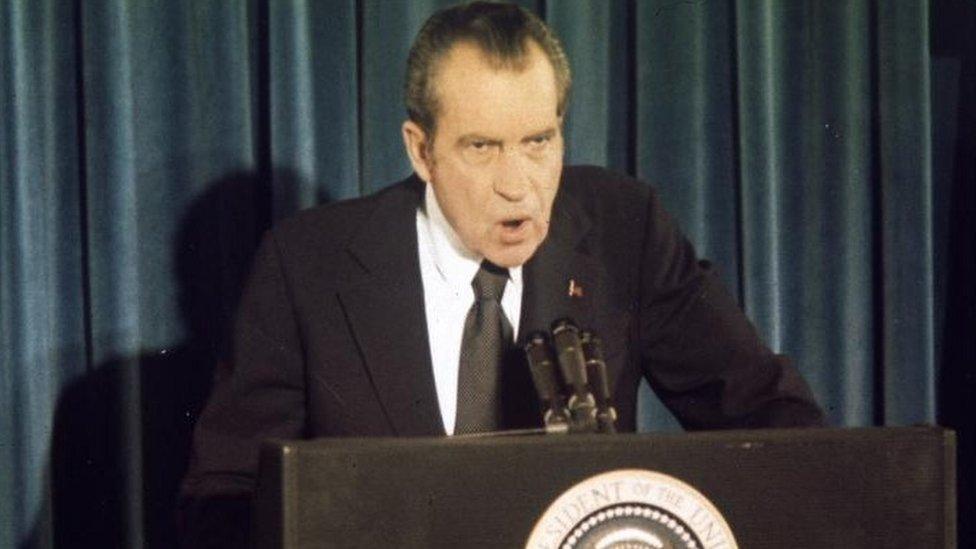
President Nixon announced his "War on Cancer" in 1971
Cancer Research UK is another organisation with moonshot-like aims, earmarking £100m, external to spend on five winning ideas to tackle some of the most important unanswered questions in cancer research.
But are campaigns like these the best way to improve cancer survival?
More than four decades ago, another American president made his own attempt.
In 1971 Richard Nixon launched what was a called a "War on Cancer" but that war is still not won.
The force behind the campaign was the socialite and philanthropist Mary Lasker.
Dr Claire Pomeroy, president of the Lasker Foundation, said the philanthropist's motivation dated back to "when she was young visiting the family's laundress who'd just had radical mastectomy for breast cancer back at a time when people didn't talk about cancer.
"She was really struck by the suffering and the hopelessness."
Stigma
Ms Lasker put a whole-page advert in the Washington Post and New York Times asking President Nixon to start a war on cancer.
It had an enormous impact - and rather than cutting the cancer research budget, the president increased it.
His advisers brought in the scientists who had got men to the moon. They reckoned they could find a cure for cancer in seven years.
But curing cancer turned out to be much more complicated than putting men on the moon.
Did President Nixon's war on cancer achieve anything?
Medical historian Dr Carsten Timmermann of Manchester University says: "A lot of new findings were already under way, for example in molecular biology. For patients there were not many tangible benefits.
"There was publicity about the war on cancer. The declaration of war may have contributed to the disappearance of stigma around cancer. Disappearance of stigma helps because people go and talk to their doctors in good time."
The Cancer Moonshot Task Force, external will deliver its first report by 31 December. Among its findings, it will make recommendations for where funding should now be directed.
Listen to BBC Radio 4 programmes assessing the US cancer "moonshot"
- Published4 March 2016
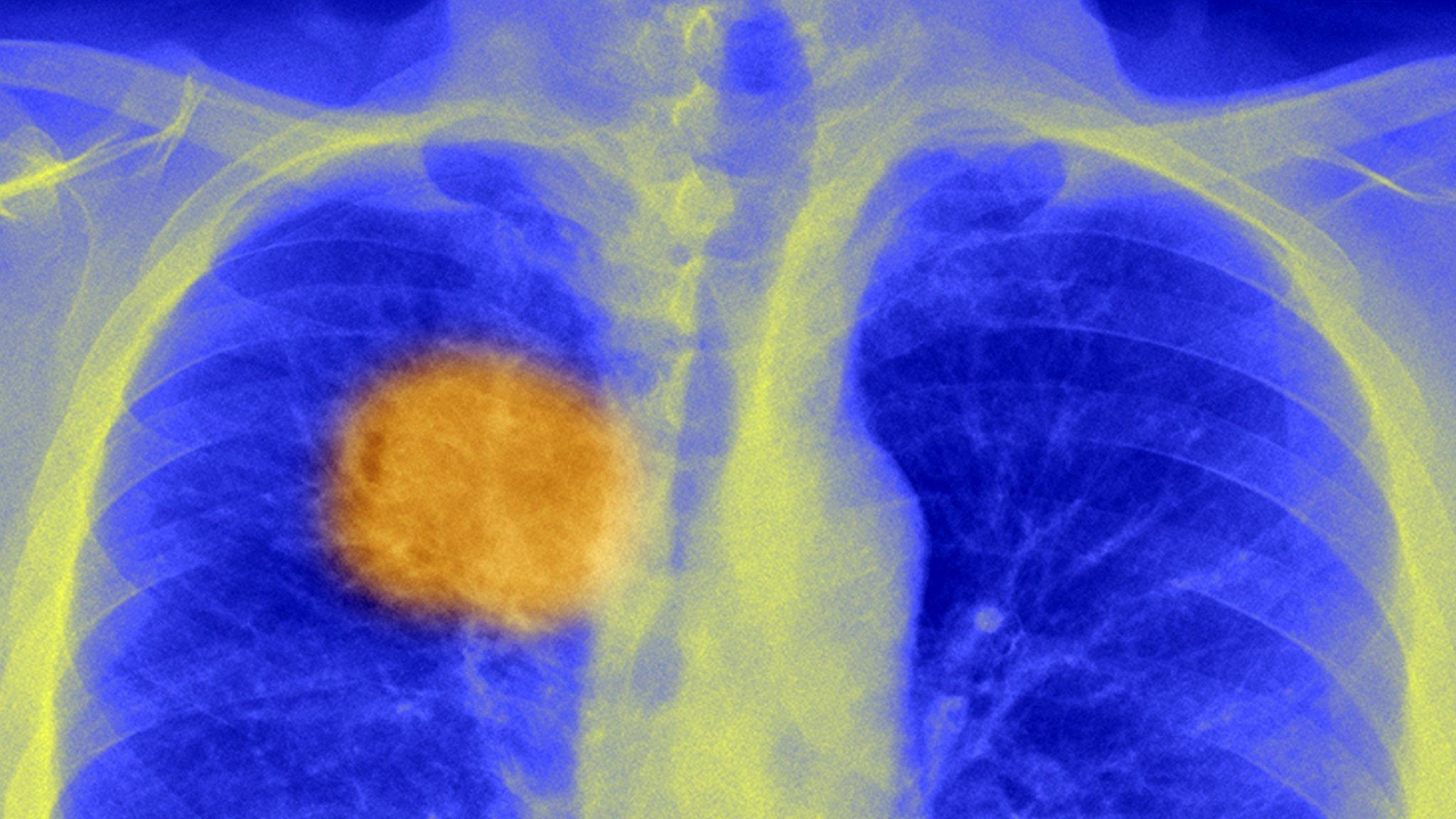
- Published16 February 2016
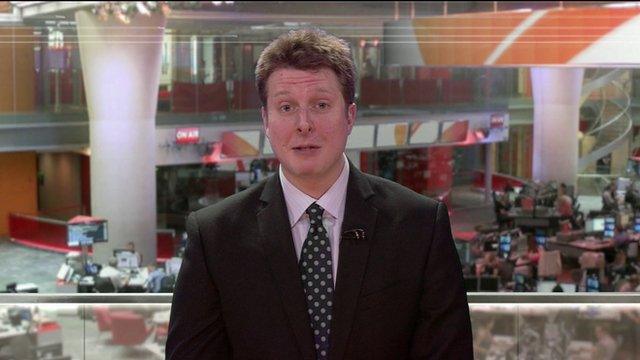
- Published22 September 2015

- Published2 July 2015
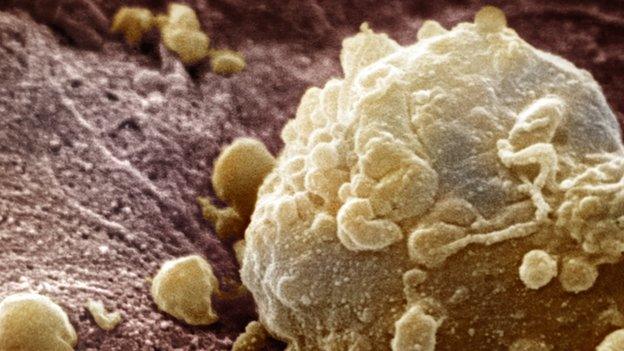
- Published30 May 2015
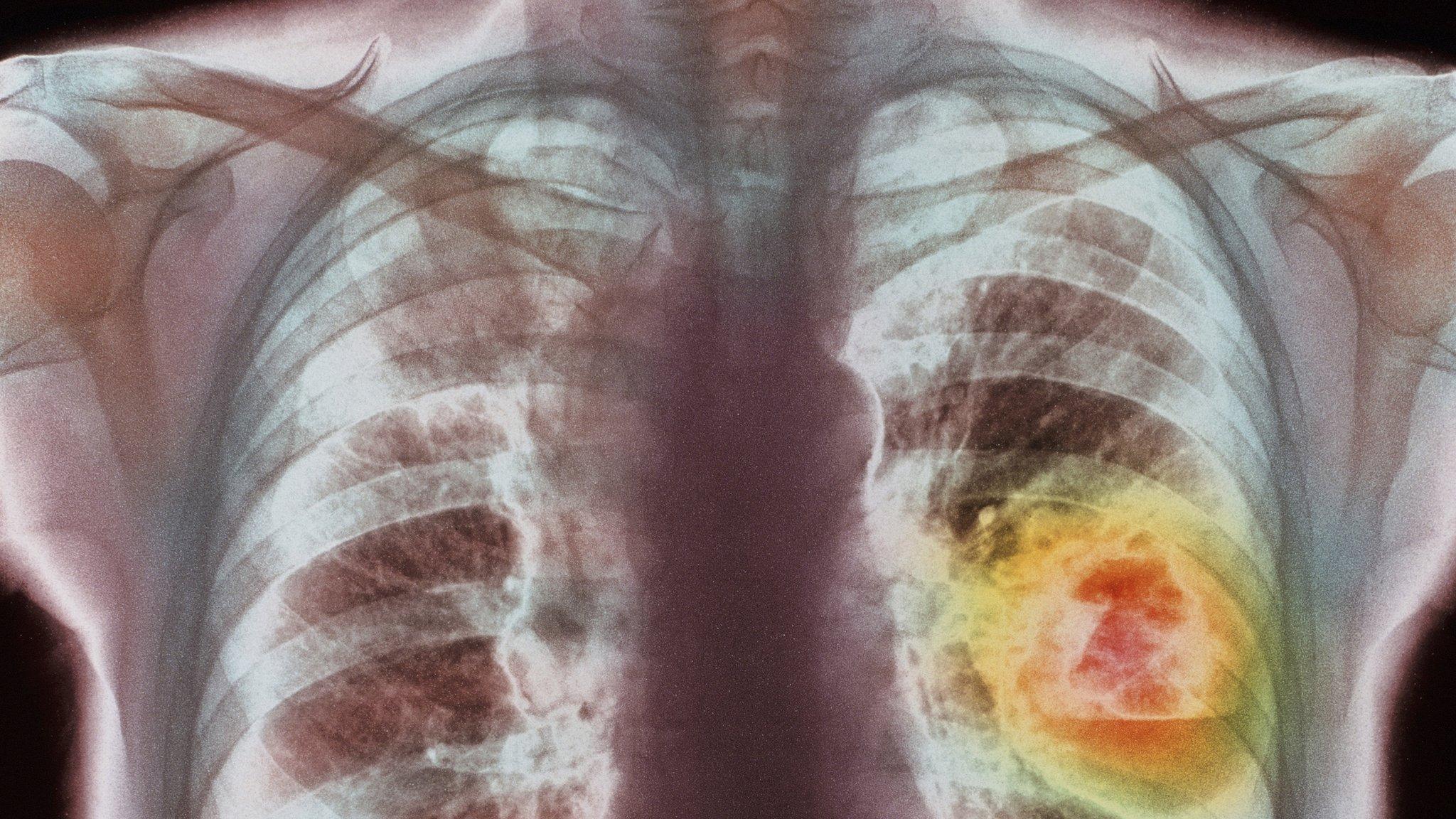
- Published28 October 2014
